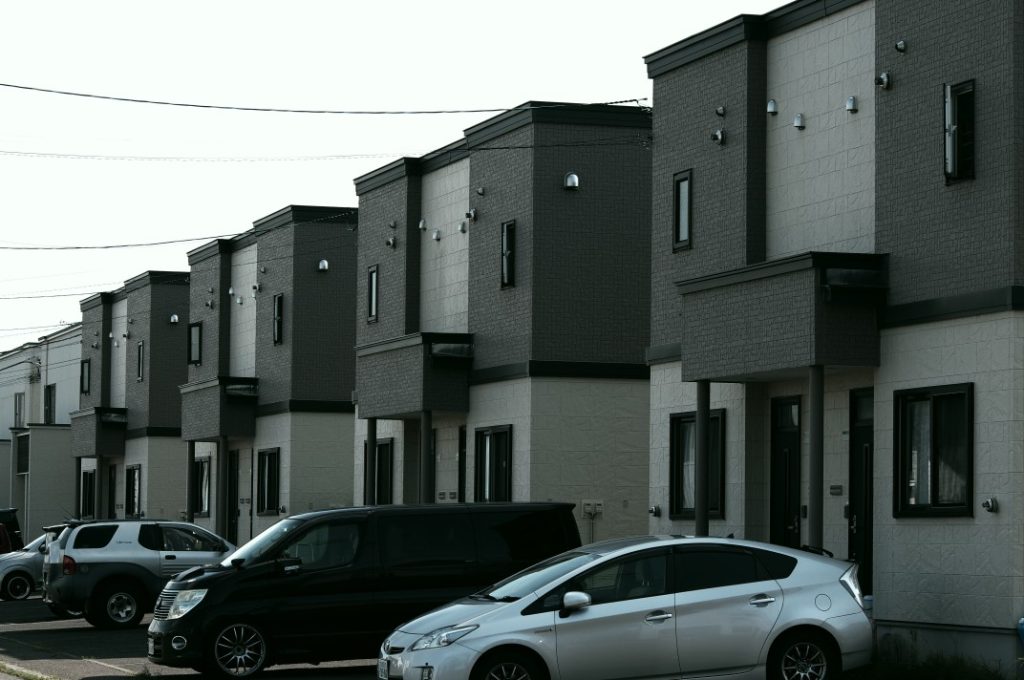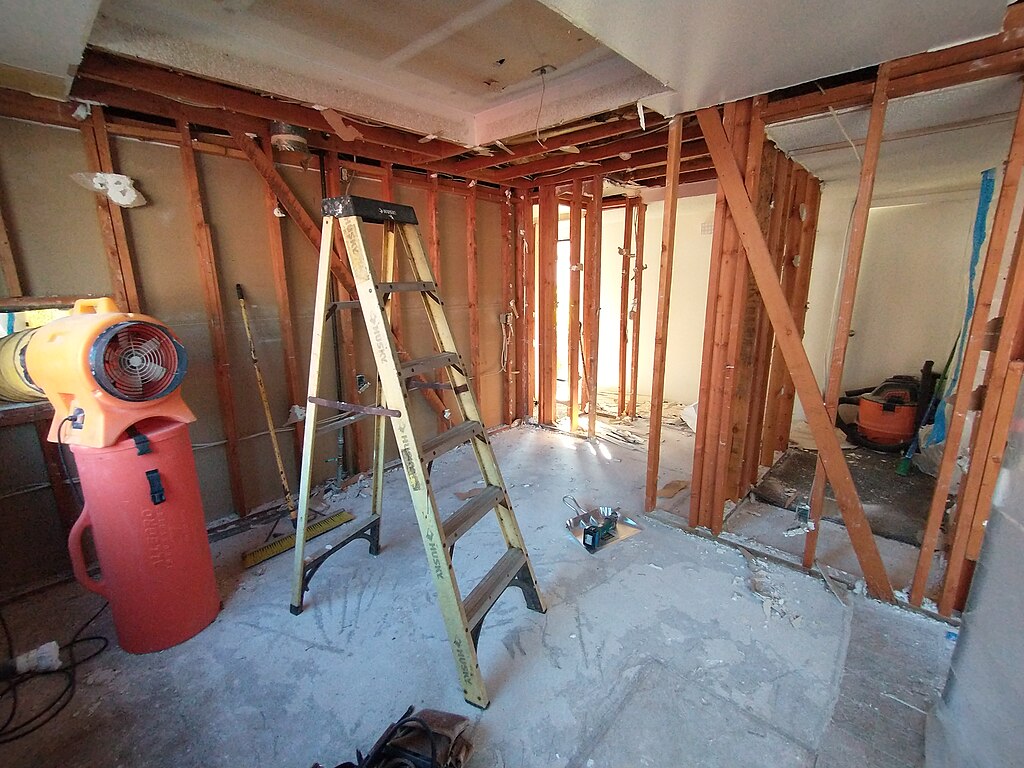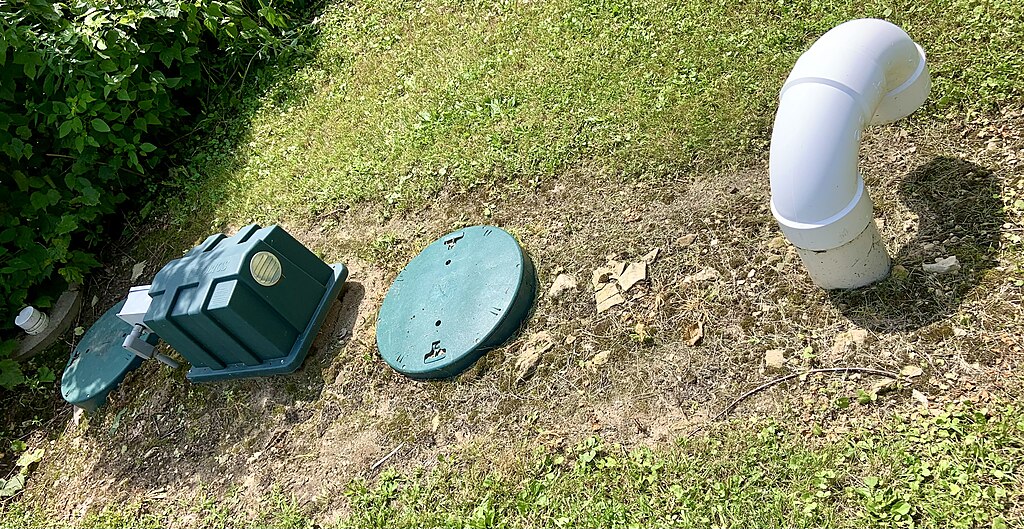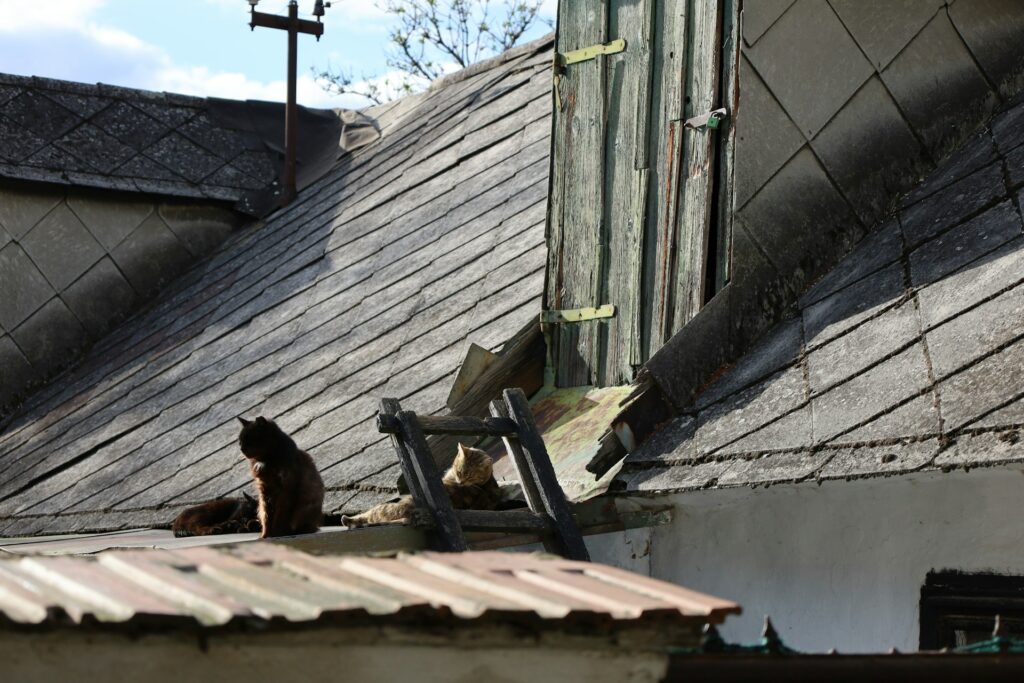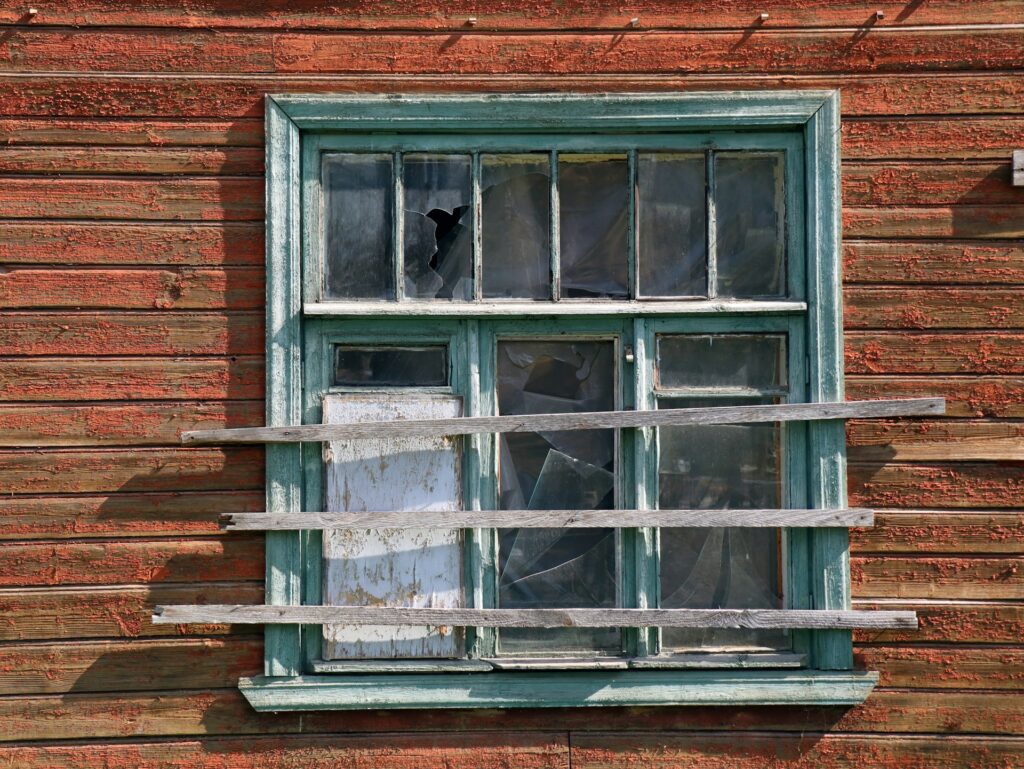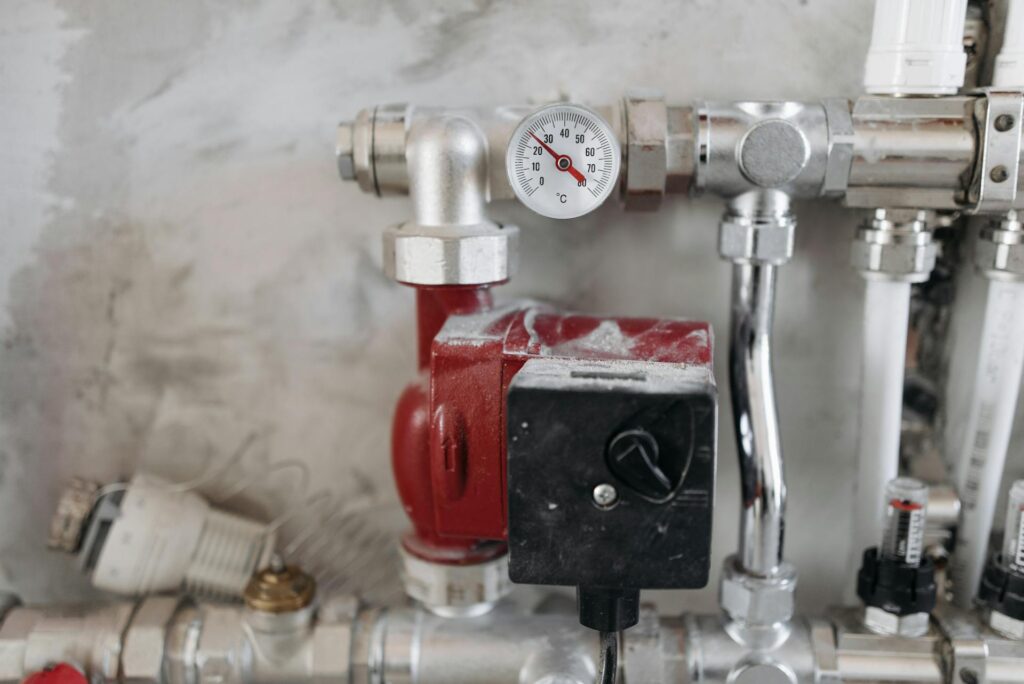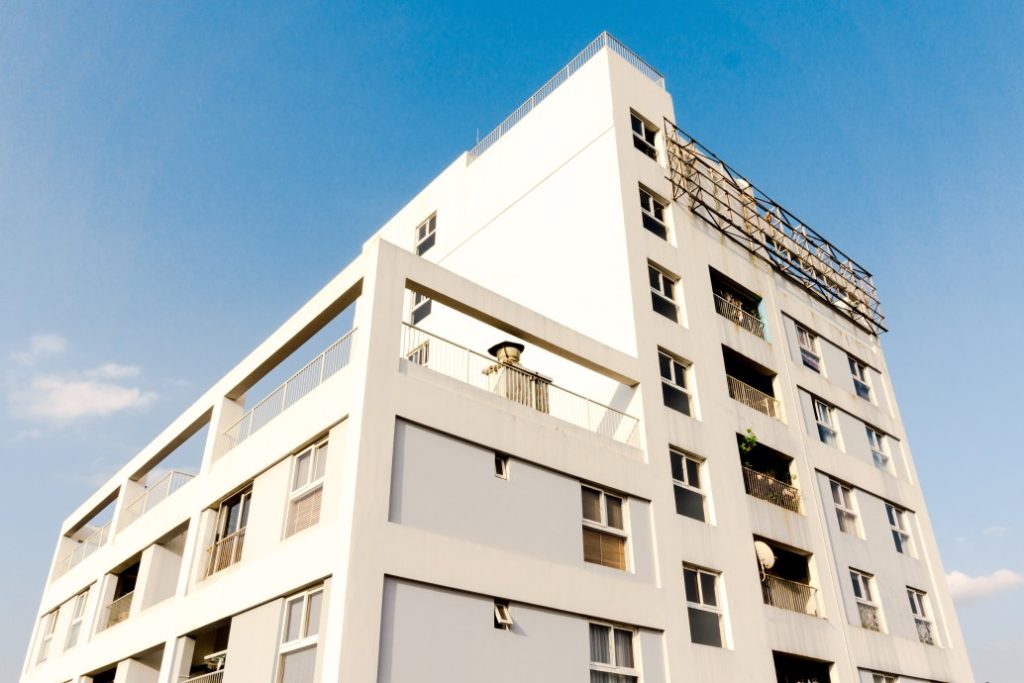If you live in (or are thinking of buying) an older property, here’s a harsh reality:
The plumbing may need replacing.
And I’m not just talking about a leaky tap or noisy pipes.
I’m talking full-on pipework overhaul – new materials, modern layout, all up to spec.
In the UK, this kind of job is no small feat. It’s disruptive. It’s expensive. And it can quickly spiral if you don’t know what you’re doing.
So in this post, I’ll break down:
- How much it really costs to replumb an old house
- What affects the cost (some of it might surprise you)
- Signs you need to take action
- Alternatives to a full replumb
- And – if the numbers don’t add up – whether it’s worth just selling the house instead
Let’s dive in.
Average Cost to Fully Replumb a House in the UK
Here’s what you can expect to pay, based on national averages:
| House Size | Typical Replumbing Cost |
| 1-bed house/flat | £6,000 – £9,000 |
| 2–3 bed house | £11,000 – £16,000 |
| 4-bed house | £16,000 – £22,000 |
| 5-bed+ house | £22,000 – £28,000 |
These are ballpark figures – but for older properties, you’ll often find yourself at the higher end of the scale due to hidden complications.
Pro Tip: Always get a full plumbing survey before budgeting. Quotes can vary massively depending on your region, property layout, and what’s hiding in the walls.
What Affects the Cost of Replacing Plumbing?
1. Age and Condition of the Property
Older homes, especially pre-1970s builds, often still have:
- Lead pipes (a health hazard)
- Galvanised steel (prone to corrosion)
- Patchy repairs over the years
These materials need replacing. And removing them adds labour time, disposal costs, and potential health & safety considerations (especially with asbestos insulation, which was common in mid-century properties).
2. Size of the Property
Simple maths here: more rooms = more pipe runs = more time and materials.
Adding en-suites, utility rooms, or kitchen extensions over the years only increases the complexity.
3. Accessibility of Pipework
Is the pipework easy to access under the floorboards? Or buried behind tiled walls and solid plaster?
Expect to pay thousands more if plumbers need to dig, chisel, or pull up flooring just to reach old pipes.
You’ll also need to factor in:
- Repairing floors, tiles, or walls after plumbing installation (not something plumbers do)
- Potential joinery or plastering work
4. Scope of Work
Are you doing a full house replumb? Or just replacing parts of a deteriorating system?
Also, are you including:
- A new boiler?
- Central heating upgrades?
- New radiators or underfloor heating?
The more you do, the more you pay – but it might make sense to do it all in one go if the disruption’s already happening.
5. Regional Price Differences
It’s no surprise: London and the South East are the most expensive.
You could easily pay 25-40% more in central London compared to the North of England or Wales.
Good to know: Labour costs, not just materials, are what really drive the price up.
Signs Your Old House Needs Replumbing
Not sure if your plumbing’s past its prime? Watch out for these red flags:
1. Brown or Discoloured Water
Rusty-looking water usually means corroded steel pipes. And if it’s from lead pipes? That’s a major health hazard.
2. Poor Water Pressure
If you’re getting a trickle instead of a flow – especially in upstairs bathrooms – your pipework might be blocked with scale or corrosion.
3. Frequent Leaks or Bursts
Are you constantly calling out the plumber for leaks? Older pipes often degrade from the inside out. One burst pipe is annoying. Two or three? You’re likely sitting on a ticking time bomb.
4. Strange Noises in the Pipes
Banging, knocking, or vibrating when you turn taps on or off is often a sign of trapped air, poor pipework design, or high pressure – all of which can mean it’s time to get a plumbing inspection
5. Outdated Materials
If your home has any of the following, it’s almost certainly due for a full plumbing replacement:
- Lead pipes (banned in new installations since 1969 in the UK)
- Galvanised steel (corrodes from the inside)
- Narrow iron supply lines (common in pre-1930s homes)
- Gravity-fed systems (with a cold water tank in the loft)
The Process of Replumbing an Old House
If you do decide to go ahead, here’s what to expect.
Step 1: Survey and Planning
A qualified plumber or heating engineer will assess:
- Current pipe layout and materials
- Water pressure and flow
- Boiler and heating setup
- Accessibility and disruption required
From here, you’ll get a quote (or preferably, several quotes).
Step 2: Removal of Old Pipework
This is the messy part.
Expect:
- Floorboards to be lifted
- Holes cut in walls
- Possibly ceilings or tiled areas being opened up
If the property’s occupied, you’ll likely be without water for days at a time – and potentially longer if bathrooms or kitchens are being updated too.
Step 3: Installation of New Pipework
New plumbing is typically done with copper or plastic PEX piping – or a mix of both:
- Copper lasts longer but is more expensive and slower to install
- Plastic is cheaper and easier to run, especially in tight or awkward spaces
New stopcocks, valves, and fittings are installed, all to current Building Regulations (check the latest on sanitation, hot water safety, and water efficiency at Approved Document G).
Don’t forget: In listed buildings or conservation areas, you may need listed building consent to change visible pipework.
Step 4: Restoring the Property
This is where the real cost creep can happen – especially in older homes with:
- Original floors or tiled surfaces
- Decorative plaster
- Historic woodwork
You might need to budget for:
- Replastering
- Floor repair or replacement
- Tiling and decoration
- Re-fitting of kitchens or bathrooms if units were removed
Environmental Considerations for Replumbing
One thing often overlooked in older homes is the green side of things.
Replacing old pipes can cut water waste from leaks – potentially saving you hundreds of litres a year.
Opt for eco-friendly materials like recyclable PEX, which uses less energy to produce than copper.
If you’re upgrading your boiler too, consider a heat pump system for lower carbon emissions. Check out the government’s Boiler Upgrade Scheme for grants up to £7,500.
It’s not just about cost – it’s about making your home more sustainable for the long haul.
Funding and Grants for Plumbing Replacement
Before you dive in, check if you qualify for help – especially with lead pipes.
Many UK water companies offer free or subsidised lead pipe replacement schemes to tackle health risks. For example:
- Severn Trent provides free replacements within your property boundary (apply at Severn Trent lead replacement).
- United Utilities has a similar scheme, but you must apply before starting work (details at United Utilities lead pipes).
- Thames Water will replace their section if you’re doing yours (see Thames Water lead replacement).
Local councils might also offer grants for private water supplies or improvements, sometimes up to £1,000. Search your water provider’s site for “lead replacement scheme” to see what’s available in your area, or use the Water UK locator to find your provider.
It won’t cover everything, but it can shave thousands off the bill.
Alternatives to Full Replumbing
Not ready to go all in? You’ve got options – although they’re more short-term than permanent.
Replace Sections Only
If your issues are isolated (e.g. one bathroom or visible corrosion in a specific area), you can opt to replace just that section of piping.
Cheaper upfront.
Risk of issues elsewhere later.
Install Water Filters
If your concern is water quality (e.g. lead contamination), a whole-house water filter can be a short-term fix.
Less disruptive.
Doesn’t address root cause.
Pipe Relining
In some cases, plumbers can reline existing pipes without replacing them – essentially creating a new pipe within the old one. This is becoming more common in UK domestic properties for water pipes, though it’s pricier upfront and not suitable for all setups. Check with a specialist via CIPHE for feasibility.
Insurance and Warranties: What You Need to Know
Before starting any work, chat with your home insurer.
Many policies cover burst pipes, but not routine replacements – so confirm if accidental damage is included.
After the job, insist on a warranty from your plumber (at least 5-10 years on materials and labour).
If you’re in a flood-prone area, new plumbing might even lower your premiums. Use comparison sites like Confused.com to check how upgrades affect costs.
It’s a small step that could save you a bundle down the line.
Is Replumbing Worth It – Or Should You Sell Instead?
Here’s the honest truth:
Sometimes it makes sense to spend £10,000+ fixing the plumbing.
Other times? You’re better off walking away.
When Replumbing Makes Sense
- You’re staying long term: If this is your “forever home”, it’s worth the investment. Safe, reliable water systems are essential – especially if you’ve got kids.
- You’re doing other work anyway: If you’re refurbishing bathrooms or extending the property, replumbing at the same time can save money in the long run.
- The house is in a sought-after area: Spending £15k on plumbing in a house that’s already worth £500k? Fair play. You’ll likely see some value back on resale.
When Selling Might Be the Smarter Move
- The costs are spiralling: Replumbing alone might not be the only issue. If you also need a new roof, rewiring, damp treatment, etc… you’re easily into £50k+ territory.
- You need to move quickly: Plumbing jobs can take weeks and leave you without water – not ideal if you’re juggling work, family, or a looming deadline.
- The value added won’t match the spend: If your house is worth £120k and plumbing quotes are coming in at £18k? You’ll struggle to recoup that on resale.
A Real Alternative: Sell Without the Work
At Property Rescue, we’ve spoken to hundreds of homeowners in this exact position.
They’ve got a beautiful old property – but behind the charm lies a pile of costly repairs. Plumbing. Damp. Electrics. The lot.
And they’re stuck because buyers don’t want to buy a project. Buyers want a home.
That’s where we come in.
We buy houses in any condition. Whether the plumbing’s shot, the roof’s leaking, or the whole place needs gutting – we’ll still buy it.
No fees.
No repairs needed.
No buyers dropping out.
Completion in as little as 7 days
If the thought of spending £15,000+ on plumbing fills you with dread, we might be your best way out.
How Much Value Does New Plumbing Add?
Here’s the reality: not a huge amount directly.
Yes, it makes the house a little more attractive to buyers. Yes, it improves energy efficiency and safety.
But will it increase the sale price because good plumbing is expected, and many alternative properties that buyers are viewing already have good plumbing.
Plumbing is something that won’t increase the market value, but can decrease it, if it’s substandard.
You’ll make the house easier to sell. But you’re unlikely to recoup the cost. So that means you lose time.
Time to Decide
If you’re staring down the barrel of a £10,000–£20,000 plumbing bill, you’ve got a decision to make.
- Spend the money and modernise the house?
- Or cut your losses and sell – as-is – to an investor ready to tackle the problem.
At Property Rescue, we’ve helped thousands of homeowners walk away from expensive renovations with a cash offer, completed in days.
While the cash offer we make to you will reflect the cost of the repairs, it’s still an easy way for you to sell the property hassle-free. Properties with problems are typically more difficult to sell and often result in buyers pulling out once they have the surveys done. But, with Property Rescue, you’ve already found a cash buyer, who will not pull out regardless of what the surveys uncover.
So if you’re thinking:
“I don’t have the time, money or energy to replumb this place…” You’ve got options.
Want a free, no-obligation cash offer for your home – no matter the condition?

